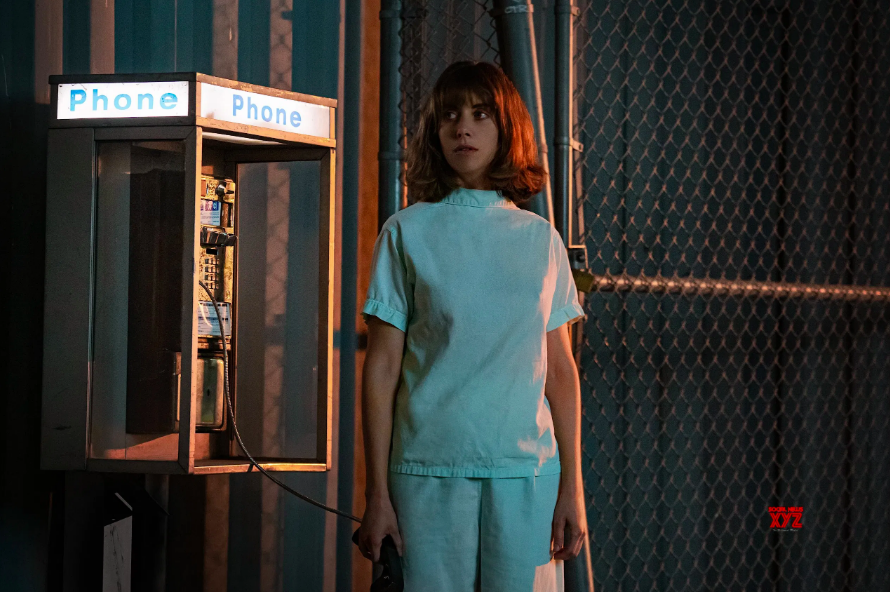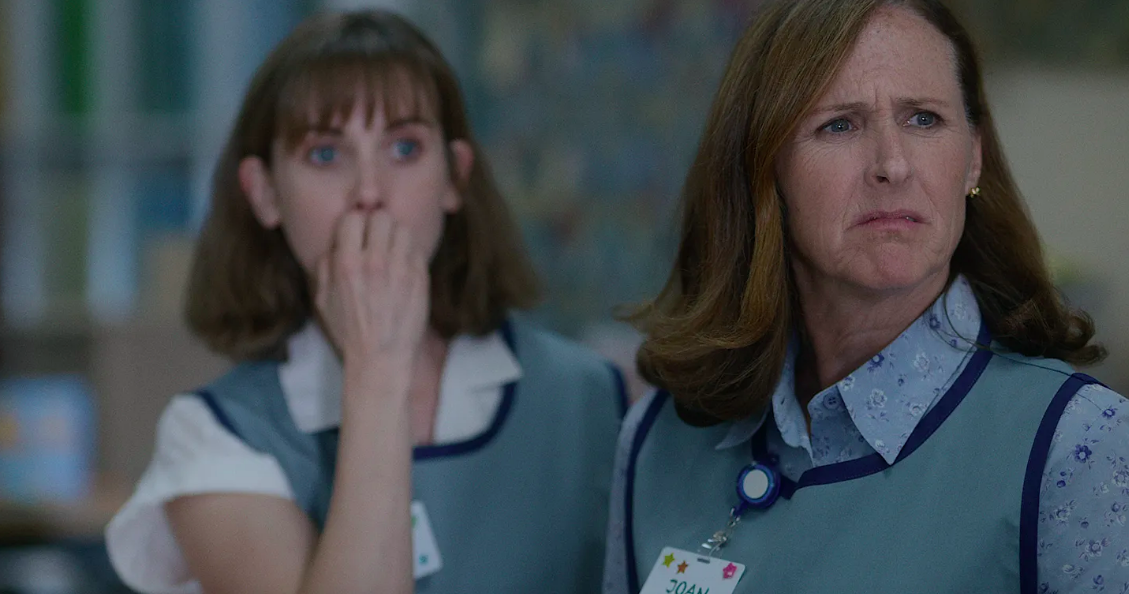Not So ‘Brand New’ Cherry Flavor
The fun tricks used in the production design and lighting read extremely well on-screen but hardly fulfill their purpose of trying to inject glamour into a lack-luster story with nothing to say.
Jeff Baena and Alison Brie’s off-kilter film Horse Girl lures audiences through its wilderness with its use of misleading setups and fluid visual style. Its momentous open ending, however, seems to have left a lot of critics confused and disgruntled on a variety of choices made by the director and screenwriters. The genre, message, and enjoy-ability of the film have all been called into question. While mixed reviews are not unique to Horse Girl, very few other pieces of cinema offer the opportunity to re-evaluate the way we read film. I believe the distaste and disorientation apparent in a lot of its reviews stem from an inability to refocus the lens through which we capture storytelling.

The film follows a young woman by the name of Sarah (Alison Brie, above), whose journey down the sinister rabbit hole of losing touch with reality leaves spectators wondering where her visions stop and a tangible plot begins.
The most prominent question I’ve come across in my reading is that of genre: “Is this a mental health picture or a sci-fi?” While many critics make the case for both, a firm answer is always just out of reach. The plot contains simultaneously too much and too little of each element to be wholly one label or the other. What is interesting about the structure of this particular piece may be the same reason that making a case for its genre is futile: Sarah’s journey puts less emphasis on the beats, (the plot points of the story), and more emphasis on the sensations created through experiencing her reality.

Unlike many stories that follow a rigid three-act structure and have the audience arrive with the protagonist at a shared destination, Horse Girl adjoins the story of “This Is What Happened to Sarah” with the question “How Do You Feel About What’s Happening to Sarah?” This film does not only tell, it asks. I believe this framework is the major significance of the ambiguous ending. We’re not supposed to ask ourselves for a concrete resolution of what really happens next, because for Sarah- nothing is concrete. Just like her, we’re asked to make sense of the strangeness for ourselves. This lack of information may leave us confused and angry. And in that unique way, they create empathy for a character that is distant, detached, and hard to relate to.
Some have commented that Sarah, as a highly unreliable narrator, is difficult to form an attachment to. I would argue that while that bond with the audience was subconsciously created via other avenues, a certain degree of isolation and distrust of Sarah’s reality only heightens the major themes of this text. Just like when the sound of your alarm clock is incorporated into your dreams before you’re fully awake, drips of realistic elements pervade Sarah’s psychosis. Jarring interludes of lucidity keep us on our toes, guessing through every episode if her experiences and interactions are real. The paper-thin reliability of her perspective only aids in a better understanding of her struggle and eventual plunge into the deep end. I believe that it’s not that Sarah is “hard to care about” as a main character; rather, Sarah and her fears take a lot of empathy and effort to understand. This understanding is created not through the unfolding of a plot’s clear, unwavering pathway but through many peripheral elements.
One of the great achievements of this film is its ability to challenge the mind and to force you to try to process information in a different way than you’re used to. While associating a film with a genre is often necessary, in this case, trying to define Horse Girl by that genre is limiting. Its influence is restricting spectators from a more abstract interpretation of the text which is a skillful medley of technical elements, performance, and the written word. This combination transcends traditional, mainstream storytelling and framework- as well as our ability to define it.
Movie review originally published by Bianca Sbrocchi on February 24, 2021.